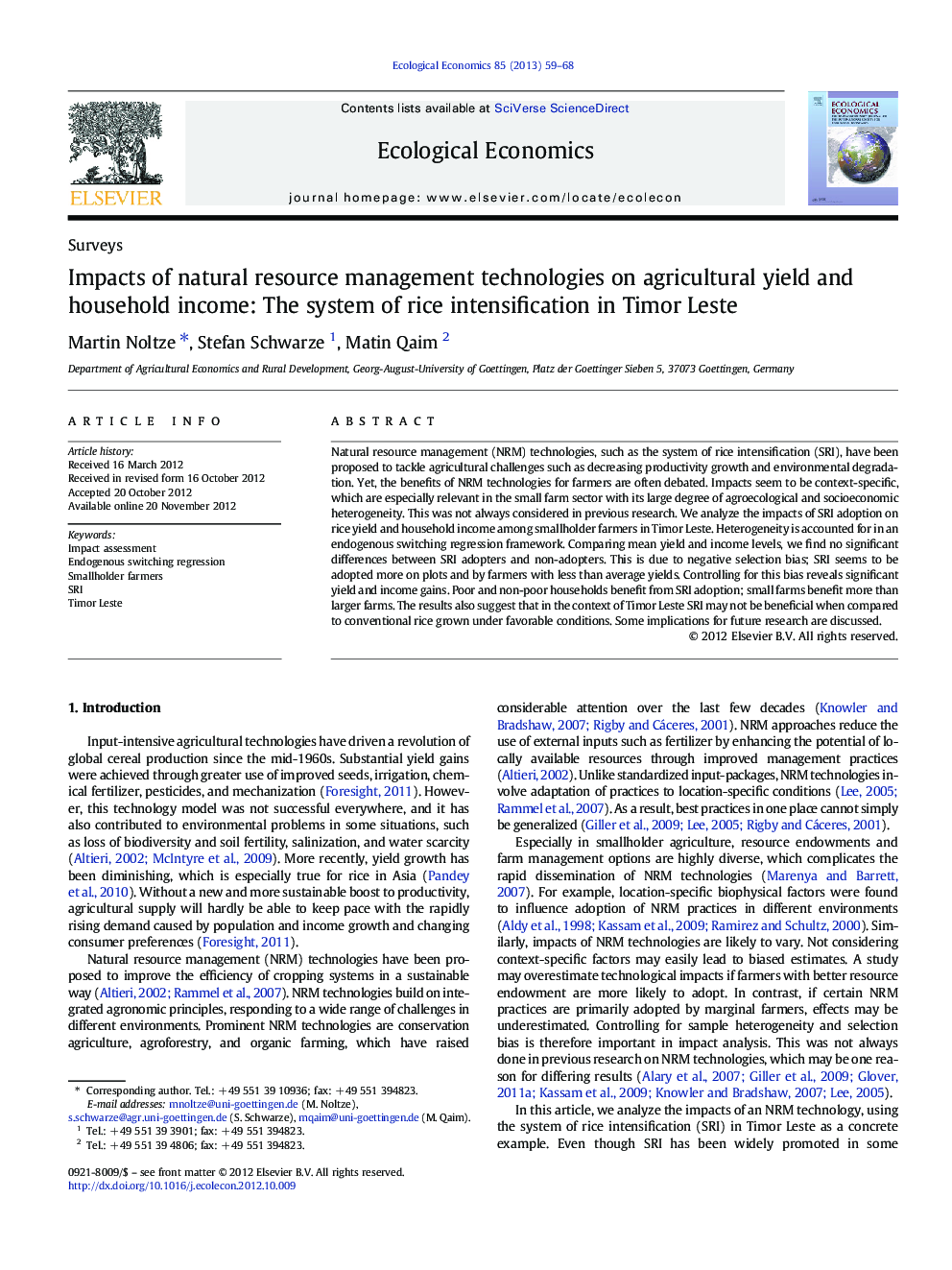| کد مقاله | کد نشریه | سال انتشار | مقاله انگلیسی | نسخه تمام متن |
|---|---|---|---|---|
| 5050199 | 1476394 | 2013 | 10 صفحه PDF | دانلود رایگان |
Natural resource management (NRM) technologies, such as the system of rice intensification (SRI), have been proposed to tackle agricultural challenges such as decreasing productivity growth and environmental degradation. Yet, the benefits of NRM technologies for farmers are often debated. Impacts seem to be context-specific, which are especially relevant in the small farm sector with its large degree of agroecological and socioeconomic heterogeneity. This was not always considered in previous research. We analyze the impacts of SRI adoption on rice yield and household income among smallholder farmers in Timor Leste. Heterogeneity is accounted for in an endogenous switching regression framework. Comparing mean yield and income levels, we find no significant differences between SRI adopters and non-adopters. This is due to negative selection bias; SRI seems to be adopted more on plots and by farmers with less than average yields. Controlling for this bias reveals significant yield and income gains. Poor and non-poor households benefit from SRI adoption; small farms benefit more than larger farms. The results also suggest that in the context of Timor Leste SRI may not be beneficial when compared to conventional rice grown under favorable conditions. Some implications for future research are discussed.
⺠We estimate the impact of the system of rice intensification (SRI) in Timor Leste. ⺠Endogenous switching regression models control for selection bias and heterogeneity among smallholder rice farmers. ⺠SRI-adopting farmers benefit through higher yields and higher household incomes. ⺠Poor and non-poor households benefit; small farms benefit overproportionally. ⺠The gains from SRI adoption depend on the specific context and reference system.
Journal: Ecological Economics - Volume 85, January 2013, Pages 59-68
